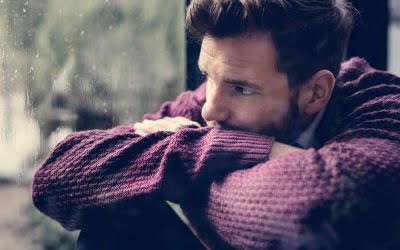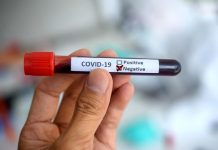Content
Recent studies have identified that daily lifestyle factors, such as smoking, alcohol intake, and sleep, play a vital role in the development of inflammatory skin diseases [5]. In some cases, excessive drinking can be the indirect cause of hair loss. While there’s no direct link between the two, the effects of alcohol abuse on the body are many and varied. Some of these effects impact the skin, including that of your scalp.

There are several factors that can make an individual more prone to hair loss, including age, hormonal changes, and certain medical conditions (such as thyroid disorders). When we drink socially, we often forget to drink enough water to avoid a hangover the next day. When someone is battling chronic alcoholism, it gets even harder to remember to drink the appropriate amount of water each day. Recovery from drinking and hair regrowth can also often go hand in hand. When someone stops drinking, it allows their body to start functioning on a much healthier level, as the body does not have to constantly act as if it is being poisoned and can begin to heal. The last treatment that I will mention, as it is the most extreme, is a hair transplant.
Is Drinking Alcohol Bad for Your Hair?
One thing is for certain, and that is that leading a life in active alcohol addiction can be one of the most stressful ways to live. This adds even another layer of reasons alcohol and hair loss are not only related, but alcohol sober house can directly affect hair loss. Stress does so many negative things to the body, and taking out alcohol can lead to a much less stressful life. Give yourself a break and call Divine Detox’s admissions department today.
- Smoking cigarettes has been linked to various health issues, including visible signs of premature aging and deterioration in skin and hair health.
- Many times, people either do not have the resources, or are homeless and do not have access to clean water, or just simply cannot properly care for their hair due to drinking.
- Sleep is still not fully understood, but scientists agree that it is one of the most important things for our health.
- In addition, the effort needed to maintain a healthy lifestyle in patients with alopecia areata might cause psychological distress and lead to nervousness, which is one of the major triggers for alopecia areata.
- Increased intake of omega-3 fatty acids and fish oil is negatively correlated with the incidence of Th2 allergic diseases [73].
- There are also some 4,000 chemicals in tobacco smoke that can damage collagen and elastin, leading to sagging skin and premature aging.
Minoxidil is a topical medication that you apply directly to your scalp. Finasteride is an oral pill, only approved for use in men, that you take daily to slow hair loss and encourage regrowth. Nutritional deficiencies, whether alcohol-related or not, can cause issues with your hair health, but that likely won’t be the only sign.
Treatment Options at Pathfinders Recovery Center
But beyond feeling tired, poor quality of sleep can leave you feeling stressed out. Dehydration, which is linked to the consumption of alcohol, can make your liver have to work even harder. This is because, with less water present, the toxins will be present in higher concentrations. Things like alco-pops, cocktails, and mixers all have huge amounts of sucrose and fructose. But there is now evidence that insulin resistance is linked to pattern baldness (3).
Does alcohol hair loss grow back?
If you notice your hair thinning, simply quitting drinking, eating healthier, and making sure to get all of your daily recommended vitamins and minerals may be all you need to regrow healthier hair.
A study on PubMed goes into detail about how tobacco smoke is thought to directly affected balding in both men and women. Sleep also has a direct impact on hair loss due to our hormones, especially melatonin. Poor sleep reduces the amount of melatonin our body produces, which can contribute to hair loss, as well. Alcohol also contains a lot of carbs, so you may feel full after drinking, even though you haven’t actually eaten anything. After a while of repeating this pattern, you’ll eventually become malnourished, which can lead to anything from brain damage due to a lack of thiamine to even hair loss. Addiction detox is a valuable part of our programs that enables you to stop consuming alcohol in a safe environment with medical support as you go through withdrawal.
Ways Your Appearance Changes When You Quit Drinking
Ethanol-exposed psoriatic skin taken from patients enhances the production of IFN-γ, TGF-α, and IL-6 secretion by the lymphocyte cell line [43]. In addition, lymphocytes from psoriasis patients enhance proliferation by alcohol exposure, which cannot be observed in healthy subjects [44]. Therefore, these findings suggest that Th17-dominant cutaneous inflammation can be exacerbated by alcohol exposure, and that Th17-mediated alopecia areata might be directly influenced by alcohol exposure. Hair follicles are considered as structures with an ability to escape from the autoimmune reaction by enhancing the suppressive signaling around them to impair CD8+ cell and NK cell function. Therefore, it is speculated that the braking of this suppressive action is a major cause of alopecia areata.
Doctors now have the technology to take hair from places that it is still growing healthily, such as the back of the head, and transplant it to a part that is balding. Unfortunately, the procedure is still relatively new, and much more needs to be understood before it becomes a perfect science. A good donor spot of healthy hair is also required, and sometimes the whole surgery becomes a failure and new hair is never realized in the originally balding spots.
Alcohol also inhibits nutrient absorption by harming the lining of your digestive system over time, damaging your intestines until they can’t transfer nutrients to the blood. Without proper protein, the production of keratin slows; this protective agent bonds hair cells together and your hair becomes prone to split ends and breakage. Similarly, zinc and folic acid, which are essential for hair growth, aren’t soaked up by your follicles. A high amount of PGE2 is also observed in skin with atopic dermatitis [91], suggesting a role of PGE2 in the pathogenesis of atopic dermatitis. Previous studies have provided us with a possible beneficial effect of PGE2 in atopic dermatitis. COX-2 inhibitors exacerbate Th2-mediated immune responses in the skin [94].
When it comes to individuals recovering from heavy drinking habits, improving their dietary patterns and reducing stress factors in their life will be particularly important in their hair loss recovery journey. When blood vessels are damaged, blood flow throughout the body is disrupted. This keeps necessary oxygen and nutrients from being delivered to cells, which can damage hair follicles and prevent proper growth. When the body lacks proper protein or other nutrients due to a poor diet, these nutritional deficiencies will likely cause hair loss over time, resulting from the disruption this causes to the body. Regularly drinking alcohol in excessive quantities can lead to the development of a nutritional deficiency (or deficiencies). Because the human body requires a specific level of nutrition to be able to function properly, a lack-there-of will result in hair loss.
All of these things come together to wreak havoc on every facet of a person’s wellbeing. If applied directly to the scalp, rubbing alcohol can dry out the hair follicle, resulting in dry hair, breakage and potential hair loss. It’s no secret that the toxins in alcohol have an effect on your liver, heart and skin. To avoid the repercussions of consuming alcohol, it’s best to drink responsibly and stay within the guidelines set out by the National Institute on Alcohol Abuse and Alcoholism. It suggests men consume no more than 4 drinks in a single day or no more than 14 drinks per week. For women, this limit is lower, at no more than 3 drinks in a single day or 7 drinks per week.

















